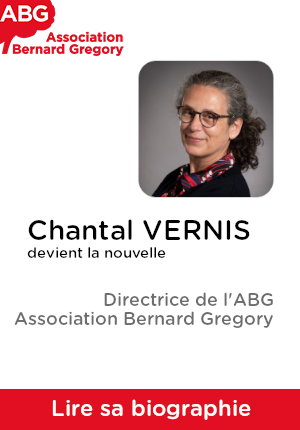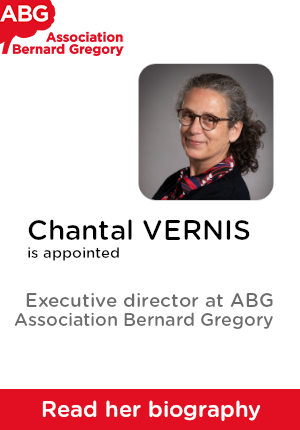All-speed schemes for numerical fluid flow simulations
| ABG-130140 | Sujet de Thèse | |
| 27/03/2025 | Autre financement public |
- Mathématiques
- Informatique
- Mathématiques
Description du sujet
Supervision: Andrea Thomann (IRMA, Strasbourg)
Laboratory and team: IRMA, Strasbourg - Team "MOCO"
Subject description:
Weakly compressible, low-Mach number flows arise in many applications such as meteorology, astrophysics or aerospace engineering. They are difficult to simulate with standard numerical methods, such as the Finite Volume Methods (FVM) [1] or the Lattice-Boltzmann Method (LBM) [3]. The first reason is that using time-explicit schemes are only conditionally stable. Indeed, fast acoustic waves, which are characteristic for low Mach number flows, impose a very constraining CFL condition and thus vanishing time steps as the Mach number decreases. The second reason is that the numerical viscosity, which is important to stabilize the numerical methods, is imposed by the fastest wave speed and is generally too large in the FVM or too low in the LBM for resolving accurately the slow material waves. The third reason is that resolving small unsteady scales requires very fine meshes. This also impedes the computational cost which means that the simulation software must be carefully optimized. The optimization process is complex, time consuming and error-prone. The traditional approach for solving the first difficulty is to adopt (at least partially) implicit schemes. However, this leads to the resolution of large non-linear systems and is computationally very costly. Solutions of the second challenge can be based either on the direct resolution of the low-Mach limit equations (incompressible equations) or on recent schemes, based on a careful analysis of the effect of the numerical viscosity on all the waves [2, 4]. Up to our knowledge, the third challenge is today mainly addressed by lengthy trial-and-error software development. The objective of this research project is to test a new explicit Lattice-Boltzmann method tailored to solve weakly compressible fluid flows. The IRMA-MOCO team has developed recently LBM schemes with very low dissipation, but with proved entropy stability [5, 6]. The LBM is known to behave well on incompressible flows thus it is promising for an extension to weakly compressible flows. In recent years, MOCO has developed explicit, but CFL-less, kinetic schemes for general hyperbolic systems of conservation [7]. The idea is to represent the equations by an equivalent set of kinetic equations coupled through a stiff relaxation term. The number of kinetic velocities remains small and the kinetic model is solved by very efficient CFL-less transport solvers. As is, the method can be applied to compressible flows. But the loss of accuracy at low-Mach is expected. We propose to extend the number of kinetic velocities in order to improve the accuracy of the slow wave approximation. The new scheme, with two families of kinetic velocities (slow and fast), will be analyzed both from the stability and accuracy point of view. The theory has been developed in the team [5, 7] and will be adapted to this case. A part of the work will be devoted to the optimization of the LBM with new tools developed in the OptiTrust ANR project of ICUBE-ICPS. This tools allow to test rapidly code transformation, that are Coq-verified, in order to ensure that the optimized code performs exactly the same computations as the non-optimized source code.
[1] Guillard, H., & Viozat, C. (1999). On the behaviour of upwind schemes in the low Mach number limit. Computers & fluids, 28(1), 63-86.
[2] Farag, G., Zhao, S., Coratger, T., Boivin, P., Chiavassa, G., & Sagaut, P. (2020). A pressure-based regularized lattice-Boltzmann method for the simulation of compressible flows. Physics of Fluids, 32(6).
[3] Frapolli, N., Chikatamarla, S. S., & Karlin, I. V. (2015). Entropic lattice Boltzmann model for compressible flows. Physical Review E, 92(6), 061301.
[4] Chalons, C., Girardin, M., & Kokh, S. (2017). An all-regime Lagrange- Projection like scheme for 2D homogeneous models for two-phase flows on unstructured meshes. Journal of Computational Physics, 335, 885-904.
[5] Lukáová-Medvidová, M., Puppo, G., & Thomann, A. (2023). An all Mach number finite volume method for isentropic two-phase flow. Journal of Numerical Mathematics, 31(3), 175-204.
[6] Bellotti, T., Helluy, P., & Navoret, L. (2024). Fourth-order entropystable lattice Boltzmann schemes for hyperbolic systems. arXiv preprint arXiv:2403.13406.
[7] Gerhard, P., Helluy, P., Michel-Dansac, V., & Weber, B. (2024). Parallel kinetic schemes for conservation laws, with large time steps. Journal of Scientific Computing, 99(1), 5.
Related mathematical skills: Background in fluid mechanics with a focus on hyperbolic partial differential equations, kinetic models and numerical methods, in particular Lattice-Boltzmann method.
Knowledge in theoretical and applied computer science is favourable, in particular scientific computing.
Experience in interdisciplinary projects is welcome as well as an advanced level of English and French.
Prise de fonction :
Nature du financement
Précisions sur le financement
Présentation établissement et labo d'accueil
IRMIA++ is one of the 15 Interdisciplinary Thematic Institute (ITI) of the University of Strasbourg. It brings together a research cluster and a master-doctorate training program, relying on 12 research teams and 9 master tracks.
It encompasses all mathematicians at Université de Strasbourg, with partners in computer science and physics. ITI IRMIA++ builds on the internationally renowned research in mathematics in Strasbourg, and its well-established links with the socio-economic environment. It promotes interdisciplinary academic collaborations and industrial partnerships.
A core part of the IRMIA++ mission is to realize high-level training through integrated master-PhD tracks over 5 years, with common actions fostering an interdisciplinary culture, such as joint projects, new courses and workshops around mathematics and its interactions.
Site web :
Profil du candidat
Selection will rely on the professional project of the candidate, his/her interest for interdisciplinarity and academic results.
Vous avez déjà un compte ?
Nouvel utilisateur ?
Vous souhaitez recevoir nos infolettres ?
Découvrez nos adhérents
 ONERA - The French Aerospace Lab
ONERA - The French Aerospace Lab  CASDEN
CASDEN  Nokia Bell Labs France
Nokia Bell Labs France  SUEZ
SUEZ  MabDesign
MabDesign  TotalEnergies
TotalEnergies  Institut Sup'biotech de Paris
Institut Sup'biotech de Paris  Laboratoire National de Métrologie et d'Essais - LNE
Laboratoire National de Métrologie et d'Essais - LNE  Groupe AFNOR - Association française de normalisation
Groupe AFNOR - Association française de normalisation  ASNR - Autorité de sûreté nucléaire et de radioprotection - Siège
ASNR - Autorité de sûreté nucléaire et de radioprotection - Siège  PhDOOC
PhDOOC  Aérocentre, Pôle d'excellence régional
Aérocentre, Pôle d'excellence régional  Tecknowmetrix
Tecknowmetrix  MabDesign
MabDesign  ANRT
ANRT  ADEME
ADEME  Généthon
Généthon  Ifremer
Ifremer  CESI
CESI
-
Sujet de ThèseRef. 130176Strasbourg , Grand Est , FranceInstitut Thématique Interdisciplinaire IRMIA++
Schrödinger type asymptotic model for wave propagation
Expertises scientifiques :Mathématiques - Mathématiques
-
EmploiRef. 130080Paris , Ile-de-France , FranceAgence Nationale de la Recherche
Chargé ou chargée de projets scientifiques bioéconomie H/F
Expertises scientifiques :Biochimie
Niveau d’expérience :Confirmé







